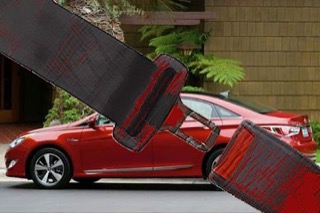Hyundai recall Problems
Seat Belts Detatch During Crash
Cars these days have airbags, sensors, crumple zones, tempered glass, and other safety features. But the OG, and arguably the most important, safety feature is the seat belt. Only trouble is, Hyundai's seem to be detatching from the body of…
Continue reading article "Seat Belts Detatch During Crash"
What Are We Missing?
We know there's more problems than this. Let us know which one you'd like to see us cover next.
Continue